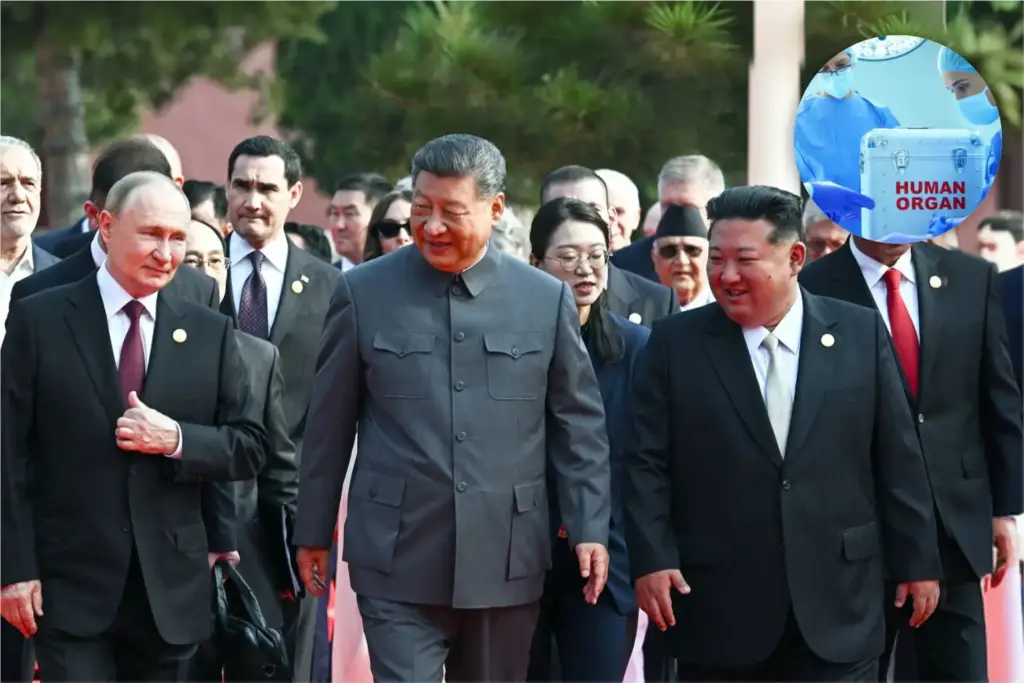
Xi-Putin organ transplantation: A light exchange about ageing between Chinese President Xi Jinping and Russian President Vladimir Putin at this week’s military parade in Beijing has stirred a serious question: can advances in organ transplantation meaningfully extend healthy human lifespans?
Walking alongside North Korea’s Kim Jong-un, Xi, 72, remarked, via interpreter, that “70 is considered young today.” Putin, also 72, suggested repeated organ transplants might one day “stave off old age indefinitely.” Xi added that living to 150 “might be possible” this century.
Also Read | India sets record with over 18,900 organ transplants in 2024: Nadda
Medical experts say today’s reality is more grounded. “When you’ve got end-stage kidney, liver or heart disease, transplantation adds years of life on the whole,” said Reza Motallebzadeh, professor of renal transplantation at University College London, The Guardian reported. “It is absolutely life-saving.”
A wide range of organs and tissues, heart, lungs, kidneys, pancreas, liver, small bowel, skin, bone, heart valves and corneas, can already be transplanted, and the list is growing. Earlier this year, the UK reported its first birth after a womb transplant from a sister donor.
But supply falls far short of demand, with waiting lists at record levels in several countries. Scarcity means donated organs are prioritised for those most likely to benefit, typically younger patients with terminal disease. Even with an abundant supply, routine transplants for otherwise healthy older adults to extend lifespan would be unlikely, Motallebzadeh cautioned, the report further added. “Transplant is a massive operation, you’ve got to be robust enough physiologically to get through that,” he said.
Beyond surgery, powerful anti-rejection drugs carry long-term risks. According to Motallebzadeh, immunosuppression can increase the risks of cancer, infection, and cardiovascular disease, which are the three main causes of death in transplant recipients.
To address shortages, researchers are testing xenotransplantation, implanting animal organs into humans. New York teams have trialled pig kidneys and lungs on brain-dead donors to assess function. In the past year, two living patients received genetically modified pig kidneys designed to reduce rejection and inactivate latent viruses while adding human genes for compatibility. The organs came from eGenesis, co-founded by Harvard geneticist George Church. He said both recipients are “healthy and happy” and no longer require dialysis.
Some proposals go further and raise complex ethical concerns. Advances in stem-cell biology and artificial womb technology have prompted debate over “spare” human bodies grown without a brain for organ supply, ideas many scientists and ethicists reject.
Church argues that engineering existing organs, inside or outside the body, may offer a less invasive path: making tissues resistant to infection and capable of releasing compounds linked to healthy ageing. “You’re turning the organ into an anti-ageing therapy,” he said, potentially avoiding major surgery and lifelong immunosuppression, the report further added.
For now, clinicians stress that transplantation remains a targeted therapy for life-threatening organ failure, not a universal longevity tool. Speculation about 150-year lifespans is, at best, premature.
(Source: The Guardian)








